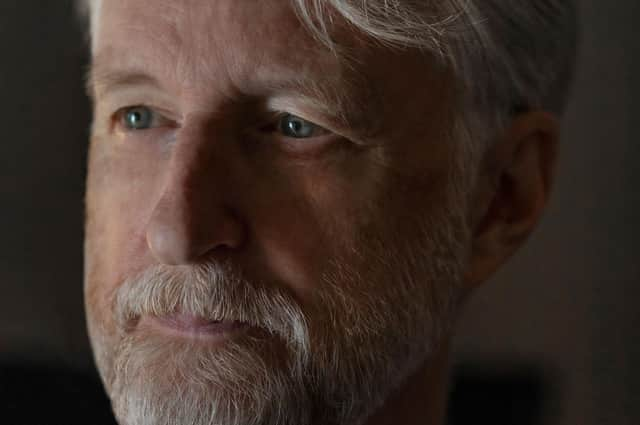Album reviews: Billy Bragg | Constant Follower | Wyndow


Billy Bragg: The Million Things That Never Happened (Cooking Vinyl) ****
Constant Follower: Neither is, nor ever was (Shimmy Disc/Joyful Noise Recordings) ****
Wyndow: Wyndow (Summer Critics) ****
Advertisement
Hide AdAdvertisement
Hide AdWhile many musicians have responded to the Covid pandemic by releasing music of solace and comfort, only Billy Bragg (so far) has managed to do so while still addressing the crisis directly, with his customary empathy.
The Million Things That Never Happened focuses on the human experience of living through a pandemic rather than counting the political or economic cost. Bragg calls it his “pandemic blues”, expressed in shades of southern soul, bluegrass lamentation and mellow country rock.
His first new album in four years was recorded in Eastbourne with Romeo Stoddart of the Magic Numbers but sounds like it could have been made in Nashville or Muscle Shoals. Everything appears softer and more soothing from the warmth of his guitar to the swaddled tone of his voice, which suits the compassion in his words as he contemplates lockdown malaise. “Don’t judge me too harshly, I can do that myself,” he sings on Good Days and Bad Days, also examining “the gap between the man I am and the man I want to be” on Mid-Century Modern.
Bragg injects an upbeat musical note on Ten Mysterious Photos That Can’t Be Explained, a roots pop number co-written with his son Jack Valero about the good, the bad and the ugly of online content. Noting that “ancestry” is the second most searched term after pornography,


Pass It On looks outwards and backward at the desire to pass stories down the generations and the need to ask questions of our elders.
Its gentle chorus of voices sounds like a family get-together, while I Will Be Your Shield is an evergreen message of support, with an added piquancy during the pandemic.
It’s been a long road to the debut album by Constant Follower, the Stirling-based outfit formed by Stephen McAll as a repository for reconfigured memories. Neither is, nor ever was is a gentle, understated, fully formed and utterly beguiling indie folk collection composed by McAll in isolation in a Hebridean cabin as a means of recovering from an assault in his teens which caused temporary paralysis and wiped out his long-term memory.
Advertisement
Hide AdAdvertisement
Hide AdThe remote cabin setting and creative catharsis conjures comparisons with Bon Iver’s stark debut For Emma, Forever Ago but instead of Justin Vernon’s fragile quaver, McAll’s voice is gruffer, more world-weary, little more than a baritone murmur on Welcha but natural and conversational over the delicately picked guitar on Weave of the World.


He sounds forlorn yet at peace on What’s Left to Say as he observes his teen self, out of body, in hospital and there is a (self-)soothing reassurance to the muttered mantra of “it’s okay, it’s alright” on ambient lullaby Altona which resonates as widely as this album deserves to be heard.
On the subject of excellent new work from experienced hands, former Trembling Bells frontwoman Lavinia Blackwall and singer/songwriter Laura J Martin come together remotely as Wyndow. Their collaboration grew initially out of a close harmony cover of Robert Wyatt’s Free Will and Testament, with its beseeching sentiments and the complementary purity of Blackwall’s contralto and Martin’s soprano inspiring a set of original songs exploring self-image, self-doubt and unease.
The music itself is calming, compelling and intriguingly out of time, from the Peter Gabriel-era Genesis whimsy of Two Strong Legs to the Kate Bush-like elemental quality of the floating vocal counterpoint and pastoral woodwind flutter on Take My Picture.
All Cameras Gone ponders capturing memories in the post-analogue age, while there is a restlessness and impatience with the familiar on Pulling on a String, an album highlight which builds like a gentle Spiritualized devotional with jazzy piano inflections and shimmering percussion.
CLASSICAL
The Dunedin Consort: Bach Cantatas – Ich habe genug (Linn) *****
Recordings of Bach by the Dunedin Consort are the gift that keeps on giving. This latest Linn recording features three remarkable cantatas – Cantata No 82 “Ich habe genug”, No 32 “Liebster Jesu, mein Verlangen” and No 106 “Gottes Zeit”, otherwise known as “Actus Tragicus” – each of which is a brilliant exemplar of Bach’s innate ability to dig way under the surface of a text and enrich its meaning. From the opening solo cantata, depicting Simeon’s fatalistic contentment in witnessing the infant Jesus, to the fuller textures of No 106, and the transformational arc from darkness to light – even where death is under the microscope – of the earlier “Actus Tragicus”, John Butt’s stylish ensemble delivers nothing short of perfection. Bass Matthew Brook and soprano Joanne Lunn are monumental among the five-piece vocal team. The instrumental support is silken but never without clarity, poise and purpose. A truly moving and beautiful disc. Ken Walton
JAZZ
Omar Sosa & Seckou Keita: Subu (Bendigedig) ****
Advertisement
Hide AdAdvertisement
Hide AdThis second album from virtuoso Cuban jazz pianist Omar Sosa and Senegalese kora virtuoso and singer Seckou Keita continues a perhaps inevitable association, given Sosa’s ongoing exploration of his music’s African roots. The combination of Sosa’s piano prowess and the mercurial brilliance of Keita’s harp-lute is a potent one, complimented by irresistible rhythms from Venezuelan percussionist Gustavo Ovalles and effects and sequencing from Steve Argüelles, while cellist Jacques Morelenbaum adds lyrical wistfulness to numbers such as Korason and Floating Boat. The opening Kharit sets a beguiling tone, with eloquent introductory exchanges between piano and kora, as well as Keita’s warmly expressive singing. There’s haunting flute from Dramane Dembélé amid the tidal lapping of Voices on the Sea and a rare clamour of piano and kora strings and further impassioned flute in Rei’s Ray. The still chiming of the closing No One Knows signals a graceful farewell. Jim Gilchrist
A message from the Editor
Thank you for reading this article. We're more reliant on your support than ever as the shift in consumer habits brought about by coronavirus impacts our advertisers.
If you haven't already, please consider supporting our trusted, fact-checked journalism by taking out a digital subscription at https://www.scotsman.com/subscriptions